When it comes to infertility, misconceptions often cloud the truth, creating unnecessary distress for many couples. Therefore, demystifying these misconceptions is particularly crucial.
Contributing significantly to this area of study are Paul Ekwere, a distinguished Professor of Urology at the University of Calabar; and Prof. Abubakar Panti of the Usmanu Danfodiyo University, Sokoto; along with Dr. Yusuf Tanko Sununu of the Federal Medical Centre, Birnin-Kebbi.
Their respective studies on the issue provide invaluable insights into the real causes of infertility, challenging many of the prevailing myths.
This article aims to dismantle some of the most common myths surrounding infertility, drawing upon the findings of these researchers.
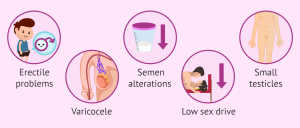
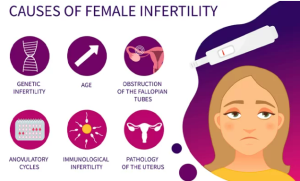 Myth: Infertility is always a woman’s issue
Myth: Infertility is always a woman’s issue
Truth: Contrary to the deep-rooted belief, infertility is not just a woman’s concern. Ekwere et al. and Panti & Sununu’s studies reveal that infertility can result from male factors, female factors, or a combination of both. This underscores the need for both partners to seek evaluation in the journey toward parenthood.
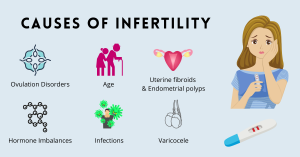 Myth: Infertility is primarily caused by stress
Myth: Infertility is primarily caused by stress
Truth: While stress can negatively impact overall health, there’s no concrete evidence linking it directly as a primary cause of infertility. Stress can exacerbate existing health problems but is not a standalone factor in infertility.
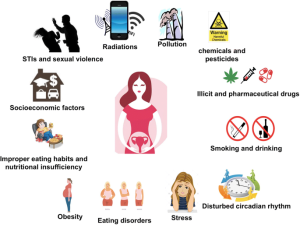
Myth: Lifestyle choices have no impact on fertility
Truth: Lifestyle factors do play a role in fertility. Smoking, excessive alcohol consumption, and extreme weight fluctuations can all affect reproductive health. This myth’s debunking reminds us of the importance of a healthy lifestyle for optimal fertility.
Myth: Infertility is always a result of sexually transmitted infections
Truth: The studies highlight that while sexually transmitted infections (STIs) are significant contributors to infertility, they are not the sole cause. Multiple factors, both medical and environmental, can lead to infertility.
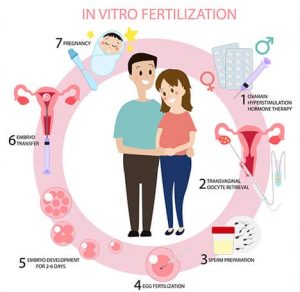 Myth: Infertility means you can’t have children
Myth: Infertility means you can’t have children
Truth: Infertility doesn’t equate to an absolute inability to have children. Modern medicine offers various assisted reproductive technologies, providing numerous options for couples striving to conceive.
Myth: Frequent sexual intercourse guarantees pregnancy
Truth: Frequency of sexual intercourse, while important, does not guarantee pregnancy. Fertility cycles and timing play crucial roles, and it’s the understanding of these aspects that can enhance the chances of conception.
Indeed, experts at Mayo Clinic advise that if having sex every day isn’t possible or enjoyable, couples trying for a child should have sex every 2 to 3 days a week starting soon after the end of the woman’s period.
“This can help ensure that couples have sex when the woman is most fertile,” the experts add.

Myth: Infertility is a result of past contraceptive use
Truth: There is no substantial evidence linking the use of contraceptives to long-term infertility. Once contraceptive use is ceased, normal fertility levels usually return after a short period.
Myth: Infertility can be cured by herbal remedies and traditional medicine alone
Truth: While complementary therapies can support fertility treatments, they are not a substitute for medical interventions. The studies by Ekwere et al. and Panti & Sununu emphasize the need for medical diagnosis and treatment in cases of infertility.
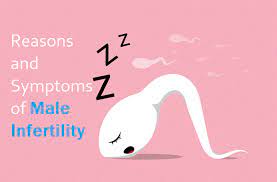 Myth: Only those who marry late experience infertility
Myth: Only those who marry late experience infertility
Truth: Infertility is not confined to older couples. It can affect couples of various ages, with factors ranging from genetic issues to environmental influences. Indeed, according to fertility expert, Dr Manika Khanna, infertility has been on the rise in young people for a while now.
Khanna adds that “Women in their 20s have trouble getting pregnant, with the most prevalent causes of infertility in this age range being ovarian dysfunction, polycystic ovarian syndrome, and tubal illness, among others.”
The physician adds that infertility factors in young men inlcude causes such as low sperm counts or poor motility.
However, according to the Institute for Family Studies, “Studies show that female fertility begins dropping from age 30 on; and more significant decline sets in later in the 30s.
“Many women’s ovarian responsiveness moves into the zone of what is now called POI (primary ovarian insufficiency), or “premature ovarian failure.” As POI develops, women have less chance of becoming pregnant without new reproductive technologies (which may be expensive, if they are even available for her).
“If her ovaries have become even more unresponsive, she will often not have an ovum (egg) that is fertile, or at times, she may have no ovum at all—and therefore, no chance of becoming pregnant without assistance.”
As for men, the Better Health Channel states: “Male fertility generally starts to reduce around age 40 to 45 years when sperm quality decreases.
“Increasing male age reduces the overall chances of pregnancy and increases time to pregnancy (the number of menstrual cycles it takes to become pregnant) and the risk of miscarriage and fetal death.”
Myth: Infertility is hereditary
Truth: Not all infertility issues are inherited. While some genetic conditions can affect fertility, a significant number of cases are due to other factors, both identifiable and unexplained.
According to Genome Medical, a peer-reviewed open-access medical journal with a focus on medical genetics, approximately 10 to 15 percent of couples experience infertility, with more than half of these cases being due to an underlying genetic issue.
The medics say that in these instances, the genetic cause could have been inherited, adding, “However, infertility is a complex condition, and most cases are not due to a known inherited cause.”
Conclusion
Understanding what does not cause infertility is pivotal for couples facing this challenge. The studies by P.D. Ekwere et al. and Abubakar A Panti & Yusuf T Sununu not only illuminate the causes of infertility but also help in debunking myths that have long shrouded this subject in mystery.
As we break these myths, couples can direct their efforts towards getting appropriate help and embracing the possibilities that modern reproductive medicine offers. With accurate information and empathetic support, the journey through infertility can be navigated with greater clarity and hope.


